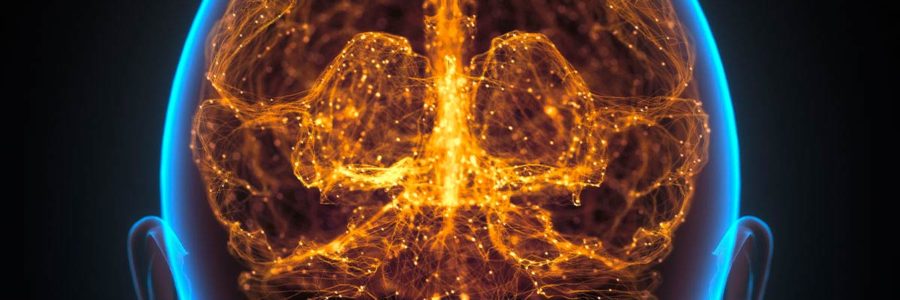5 Ways to Stimulate Neurogenesis
![]()
This article has been medically reviewed by Dr. Charles Penick, MD![]()
Scientists have recently made a startling discovery: new brain cells can be grown and formed throughout a life well into adulthood. In this article, we will discuss the process of neurogenesis and the top ways to create new brain cells.
What is Neurogenesis?
Neurogenesis is the growth and development of new nervous tissue. More specifically, it’s the process in the brain where new neurons are formed. Neurogenesis plays a crucial role in developing embryos and after birth. Science used to suggest adult brain was incapable of neurogenesis. But, in the 1990s, it was discovered that “adult neurogenesis” is a regular occurrence in a healthy brain.
Neurogenesis is vital to brain health:
- Studies indicate new neurons are “continuously generated and functionally integrated” throughout adulthood into existing circuits in the hippocampi.1
- Preliminary studies indicate a link between a decline in adult neurogenesis and neurodegenerative diseases such as Alzheimer’s.2
How to Stimulate Neurogenesis
There are several ways to stimulate or increase neurogenesis naturally. Here are the top ways to form new brain cells via neurogenesis.
1. Exercise
In addition to improving mood and cognition, exercise can help preserve existing brain cells and stimulate neurogenesis. Studies indicate exercise can encourage a healthy increase in neurogenesis in the hippocampus area of the brain, which is essential for learning and memory.3
The top exercises that support neurogenesis include the following:
- Dancing
- Biking
- Running
- Yoga and meditation
- Swimming
- Mental exercises
2. Diet
Diet plays a key role in overall health, including neurogenesis. Two such diets are intermittent fasting and ketogenic diets.
- Intermittent fasting. Intermittent fasting is a period of minimal food consumption. This form of eating can increase hippocampal neurogenesis.4
- Ketogenic diets. Ketogenic diets are low in carbs and high in healthy fats. This prompts the body to use stored body fat for energy. While research on keto diets, in particular, is ongoing, studies indicate a high-carb diet may play a role in developing Alzheimer’s.5
3. Meditation
Meditation is using mindfulness and focusing on clearing the mind and entering a calm and stable state. Meditation can increase the size of gray matter in the brain, which is associated with improved function and performance abilities in those areas.6
4. Sleep
Chronic sleep deprivation can increase stress hormones while simultaneously decreasing neurogenesis. In addition, sleep loss impairs hippocampal neurogenesis. Researchers believe impaired neurogenesis may underlie some of the memory and mood effects of acute and chronic sleep disruptions.7
5. Nootropics
Nootropics are substances that facilitate learning and enhance memory and cognition. Nootropics come in three categories: prescription drugs, dietary supplements, and synthetic compounds. The nootropic Lion’s Mane (a medicinal mushroom) can induce nerve growth factors in nerve cells. Also known as Hericium Erinaceus, Lion’s Mane may also enhance the growth of neurons.8
Final Thoughts
Neurogenesis is the process of forming new cells in the brain. Until recently, it was believed neurogenesis only occurred in embryos and after birth, but they can be produced throughout adulthood. Neurogenesis is essential to brain health, and a decline in adult neurogenesis is associated with neurodegenerative diseases such as Alzheimer’s. Exercise, getting adequate sleep, meditation, and healthy eating are excellent ways to maintain neurogenesis as a person ages.
Medical Disclaimer: This article is based on the opinions of The Cell Health team. The information on this website is not intended to replace a one-on-one relationship with a qualified healthcare professional and is not intended as medical advice. Instead, it is intended to share knowledge and information from the research and experience of the Cell Health team. This article has been medically reviewed by Dr. Charles Penick, MD, for the accuracy of the information provided. Still, we encourage you to make your own healthcare decisions based on research and in partnership with a qualified healthcare professional.
References:
- Md Jahangir Alam, Takashi Kitamura, Yoshito Saitoh, )et al). Adult Neurogenesis Conserves Hippocampal Memory Capacity | Journal of Neuroscience. Journal of Neuroscience 1 August 2018, 38 (31) 6854-6863; DOI:https://doi.org/10.1523/JNEUROSCI.2976-17.2018. https://www.jneurosci.org/content/38/31/6854
- Adi Shruster, Eldad Melamed, Daniel Offen. Neurogenesis In The Aged And Neurodegenerative Brain. Apoptosis. 2010 Nov;15(11):1415-21. doi: 10.1007/s10495-010-0491-y. [PMID: 20339917]. https://pubmed.ncbi.nlm.nih.gov/20339917/
- Henriette van Praag. Neurogenesis And Exercise: Past And Future Directions. Neuromolecular Med. 2008;10(2):128-40. doi: 10.1007/s12017-008-8028-z. Epub 2008 Feb 20. PMID: 18286389.https://pubmed.ncbi.nlm.nih.gov/18286389/
- Sang-Ha Baik 1, Vismitha Rajeev 1, David Yang-Wei Fann, (et al). Intermittent Fasting Increases Adult Hippocampal Neurogenesis. Brain Behav. 2020 Jan;10(1):e01444. doi: 10.1002/brb3.1444. Epub 2019 Dec 5. [PMID: 31804775].https://pubmed.ncbi.nlm.nih.gov/31804775/
- Samuel T Henderson. High Carbohydrate Diets And Alzheimer’s Disease. Med Hypotheses. 2004;62(5):689-700. doi: 10.1016/j.mehy.2003.11.028. [PMID: 15082091].https://pubmed.ncbi.nlm.nih.gov/15082091/
- Britta K. Hölzel,*,a,b James Carmody,c Mark Vangel, (et al). Mindfulness Practice Leads To Increases In Regional Brain Gray Matter Density. Psychiatry Res. 2011 Jan 30; 191(1): 36–43. [PMCID: PMC3004979].https://www.ncbi.nlm.nih.gov/pmc/articles/PMC3004979/
- Anka D Mueller 1, Peter Meerlo, Dennis McGinty, (et al). Sleep And Adult Neurogenesis: Implications For Cognition And Mood. Curr Top Behav Neurosci. 2015;25:151-81. doi: 10.1007/7854_2013_251. [PMID: 24218292]. https://pubmed.ncbi.nlm.nih.gov/24218292/
- Puei-Lene Lai 1, Murali Naidu, Vikineswary Sabaratnam, (et al). Neurotrophic properties of the Lion’s mane medicinal mushroom, Hericium erinaceus (Higher Basidiomycetes) from Malaysia. Int J Med Mushrooms. 2013;15(6):539-54. doi: 10.1615/intj medmushr.v15.i6.30. [PMID: 24266378]. https://pubmed.ncbi.nlm.nih.gov/24266378/


